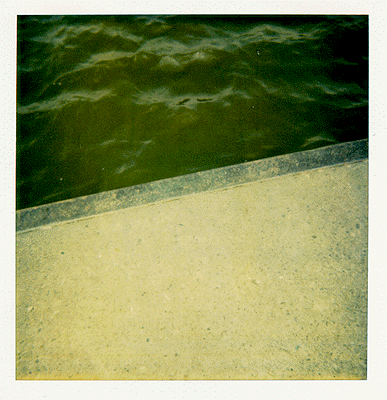

Pittsburgh: The Point.
Where the Allegheny and Monongahela Rivers meet to form
the Ohio.

Gertrude Stein was born in the city of Allegheny in what is now the North Side of Pittsburgh. Ms. Stein, her friend, Ms. Alice B. Toklas, and their era are celebrated in an excellent biography, Charmed Circle, by James R. Mellow. Photographs of Ms. Stein and Ms. Toklas held by the Library of Congress are searchable through the Carl Van Vechten Photographs Home Page. Hey! writing style and lifestyle aside, anyone who could know to buy a Cezanne (in the early days), probably for only a couple hundred bucks, throw it in the back of a cab and drive off with it, has my respect. A brief personal tribute to these two ladies is urged upon the reader.
Mr. Ernest Hemingway was a good writer and fond of cats, but he wasn't always so nice to his friends or to his wives. Several items on this Homepage declare themselves for a mythic sensibility. Unfortunately, reality and the mythic are in tension in this world--whether expressed in the statue of "The Reading Blacksmith", or in this slightly-edited selection from Mr. Hemingway which describes those young Italian men who had gone off to war.
Bessie Smith, 1894?-1937, is buried on the outskirts of Philly. Her tombstone, paid for in part by Janis Joplin, declares, "The Greatest Blues Singer in the World Will Never Stop Singing." (127K 11.92 sec.) Not a typical, but certainly a most existential blues is "Long Old Road" which Ms. Smith authored.
"It was in the midst of Winter," writes Albert Camus, "that I discovered there is in me an invincible Spring."
Coming back from my Giant Eagle, with bags of groceries (cat food), I saw upon the ground Roberto Clemente's face. The paper it was on was muddy and somewhat trampled, but this is what it said.
"Whether a library is to give forth its soul to the people is a question of the librarian."
--Andrew Carnegie, in an address delivered at Tuskegee Institute on 5 April 1906."In 1930 Jose Ortega y Gasset wrote that the mass-man took the civilzation into which he was born as a matter of course, 'as spontaneous and self-producing as nature.' This, claimed Ortega, made a primitive of him, with civilzation his forest.
"It is difficult to perceive any great literary sensitivity coming as a result of the flood of print that has turned reading into a process of gulping rather than savoring." --Warren Chappell.